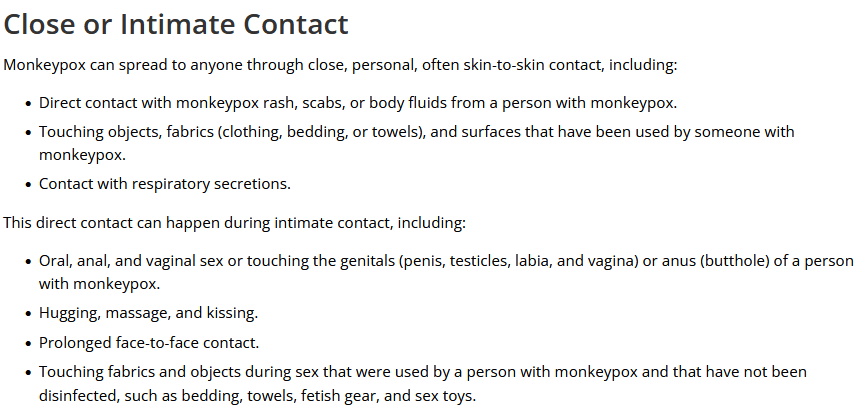It looks like you're using an Ad Blocker.
Please white-list or disable AboveTopSecret.com in your ad-blocking tool.
Thank you.
Some features of ATS will be disabled while you continue to use an ad-blocker.
9
share:

Incoming! Take cover!! It's the viral contagion trifecta:
BETHESDA, Md. — As we head toward Halloween, health experts are sharing a scary new word. They're calling the risk of surging COVID, influenza, and RSV a "tridemic" or "tripledemic."
It's already hit some schools and threatens to again overwhelm hospitals.
"RSV is probably the scariest experience we've had as parents," said Darcy Whelan Slayton, a southern Maryland mom whose 18-month-old son, August, has been hit by a seemingly non-stop wave of respiratory viruses.
"His first week of daycare, he came home sick on Friday of week one. It turned out he had RSV, which turned out to be RSV and the flu and also an ear infection. And it just sort of spreads like wildfire. And every week we're wondering how people do this."
Medical experts warn that COVID to flu and another infection called respiratory syncytial virus could make for a triple damage this winter cover cases are rising in Europe which usually precedes a spike here in the US where winning immunity is already a concern the flu season has also begun earlier in some areas here and is expected to soar over the coming weeks and R. S. V. which has similar symptoms to both is overwhelming some pediatric hospitals one expert described these viruses as coming back with a vengeance after more than 2 years of quarantine and social distancing at one extreme was an outbreak of flu like and gastrointestinal symptoms at a Virginia high school that kept more than 1000 kids home last week while cases of these triple Deming viruses are likely to be mild they have the potential to sickened millions of Americans and strained hospitals well there is no vaccine for RSV officials urge everyone who can to get the latest cove it and flu shots to do so.
weather.com...
Everything comes in threes, right?
COVID

FLU

RSV
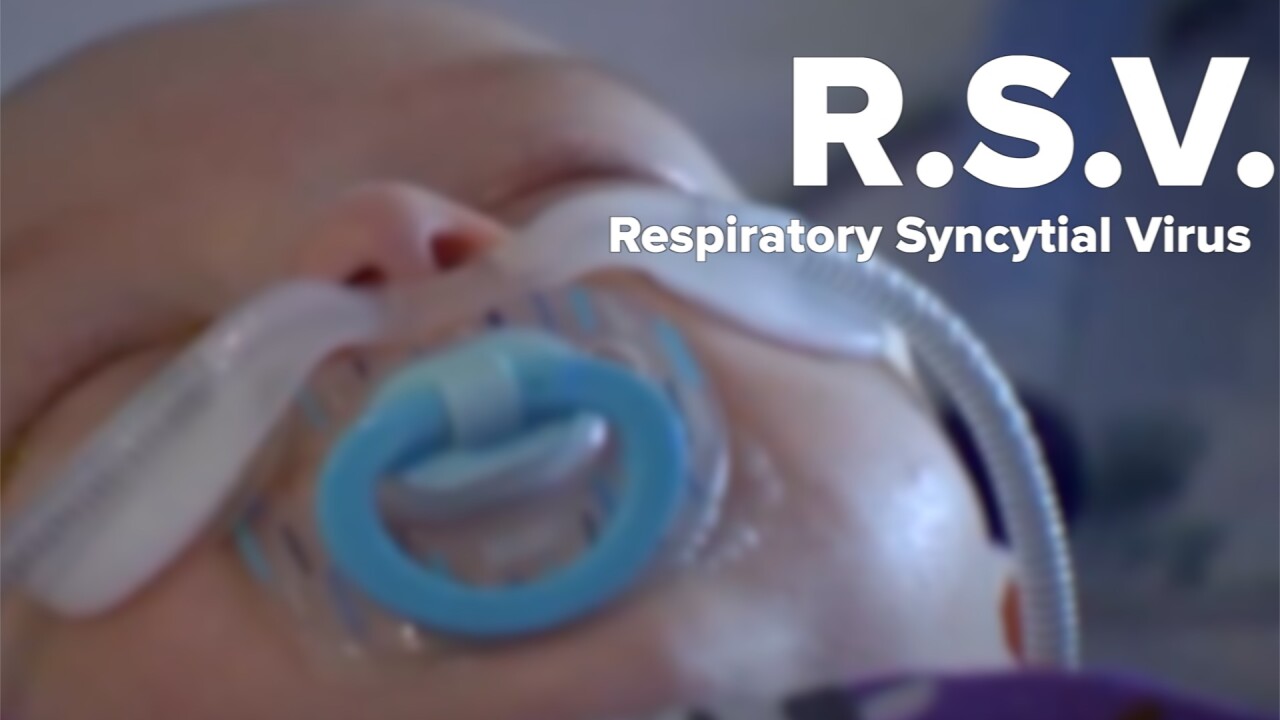
There you were, being a nice little guy just going on about your business. You couldn't find your last mask that day. You got on the bus, to go get something to eat. While on it you picked up the TRIPLEDEMIC. On the way off you shook the bus drivers hand, and sure enough you got a hold of his Warts. Now you're QUADRUPLEDEMIC infected. Your chicken strips lunch in little China town tasted good, but come to find out not only was it not chicken, but even worse the creature had Monkeypox. Now you have QUINTUPLEDEMIC. While sitting on the bench waiting for the bus, you get bit by a mosquito, giving you West Nile Virus. Now you're SEXTUPLEDEMIC!
It may be some time before you notice the symptoms, but in the meantime you're out spreading your cocktailedemic to your colleagues and loved ones. All because you wouldn't get vaccinated, didn't wear a mask, and went out for lunch.
How many will YOU kill this month?
MONKEYPOX
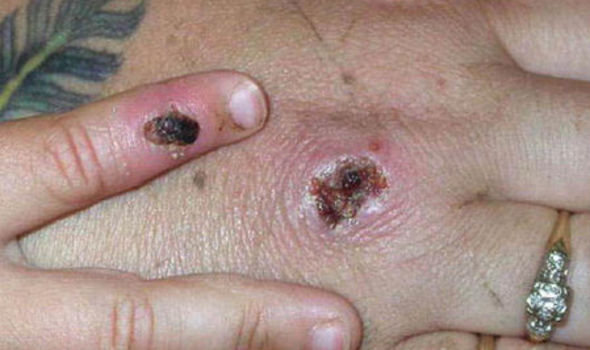
It’s also possible for people to get monkeypox from infected animals, either by being scratched or bitten by the animal or by preparing or eating meat or using products from an infected animal.
www.cdc.gov...
WARTS
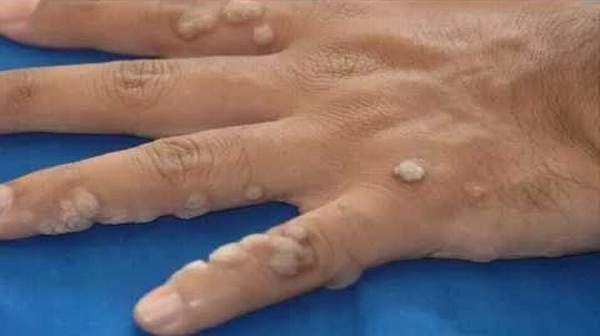
Common warts are caused by a virus and are transmitted by touch. It can take a wart as long as two to six months to develop after your skin has been exposed to the virus. Common warts are usually harmless and eventually disappear on their own. But many people choose to remove them because they find them bothersome or embarrassing.
www.mayoclinic.org...
WEST NILE
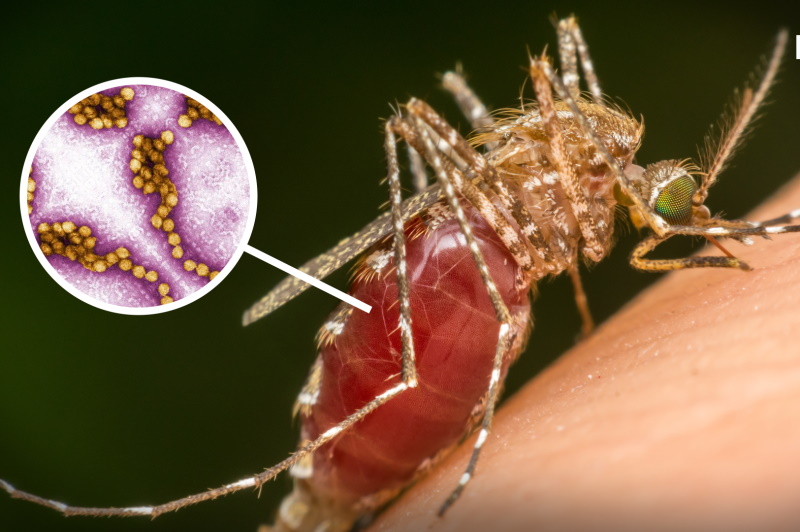
There are no vaccines to prevent or medications to treat WNV in people. Fortunately, most people infected with WNV do not feel sick. About 1 in 5 people who are infected develop a fever and other symptoms. About 1 out of 150 infected people develop a serious, sometimes fatal, illness.
You were warned!

edit on 25-10-2022 by godsovein because: (no reason given)
We can be sure it will include a deadlier monkeypox virus, like they created in that Pennsylvania lab
This won't stop until we unite and revolt (revolution).
Enough is enough!
This won't stop until we unite and revolt (revolution).
Enough is enough!
edit on 25-10-2022 by ancientlight because: (no reason given)
There IS a traditional vaccine for RSV.
However, it is horribly expensive.
My Grandson had them last year before his heart surgery. He would have died before his heart was fixed if he caught RSV.
So his insurance company approved it. It costs $6K and has to be taken once a month during RSV season.
So for my grandson it cost $24,000 for him to be "fully" vaccinated against RSV and it has worn off by now.
It is my understanding that very very few are approved to get the vaccine and it is given only by certain people at certain locations at certain times. Very difficult to obtain as well as horribly expensive.
No "normal" kid is going to be approved for it.
My little nephew who had COVID and was hospitalized recently with RSV has not been approved for the vaccine, because he is not "enough" at risk.
However, it is horribly expensive.
My Grandson had them last year before his heart surgery. He would have died before his heart was fixed if he caught RSV.
So his insurance company approved it. It costs $6K and has to be taken once a month during RSV season.
So for my grandson it cost $24,000 for him to be "fully" vaccinated against RSV and it has worn off by now.
It is my understanding that very very few are approved to get the vaccine and it is given only by certain people at certain locations at certain times. Very difficult to obtain as well as horribly expensive.
No "normal" kid is going to be approved for it.
My little nephew who had COVID and was hospitalized recently with RSV has not been approved for the vaccine, because he is not "enough" at risk.
They've tried to push the panic button too many times. Mine just doesn't work anymore.
When I start seeing these guys wandering around, I'll worry about a virus.

When I start seeing these guys wandering around, I'll worry about a virus.

I'm done bracing.
With labs doing gain-of-function microbe "research" in the middle of population centers, might as well kiss it goodbye now and wait for the inevitable.
When this is over, the term "Playing with fire" will be replaced by "Playing with viruses".
With labs doing gain-of-function microbe "research" in the middle of population centers, might as well kiss it goodbye now and wait for the inevitable.
When this is over, the term "Playing with fire" will be replaced by "Playing with viruses".
Pneumonia and the flu were killing people who also had covid in their bodies, but they did not mention that many of those deaths they attributed to
covid also had other contributing factors. I bet if the people tested positive for covid they did not even test for flu or for pneumonia or pluracy
or multiple other infections during the early pandemic. Most deaths were from comorbitities during that time...it was not just being overweight or
from diabetes either, lots of other diseases were mixed in.....diabetes did not help though, neither did a lot of the medicines that people with these
conditions they were treating them for to prevent the conditions from manifesting...like antipsychotics, heart medicines used to try to keep people
from having a problem, or certain meds used to stop anxiety and depression.
you forgot bird flu? lots of it supposedly doing the rounds here..
handy map of UK outbreaks
handy map of UK outbreaks
edit on 26-10-2022 by nickyw because: (no reason given)
new topics
-
RIP Merrily Harpur British Big Cat Realist
Cryptozoology: 1 hours ago -
Australian mercenary caught and crying as he is a prisoner of war.
Other Current Events: 7 hours ago -
JILL BIDEN Wants JOE to Punish Democrats Who Forced Him to Leave Office in Disgrace on 1.20.2025.
2024 Elections: 8 hours ago -
Panamanian President-“every square meter” of the Panama Canal belongs to Panama.
New World Order: 8 hours ago -
NYPD arrests migrant who allegedly set woman on fire on subway train, watched her burn to death
Breaking Alternative News: 11 hours ago
top topics
-
California Business Owners Blindsided by Surprise Payroll Taxes
US Political Madness: 16 hours ago, 20 flags -
The clotting is not going away latest
Medical Issues & Conspiracies: 14 hours ago, 10 flags -
F-18 shot down over Red Sea....by our own Destroyer?
Other Current Events: 16 hours ago, 7 flags -
NYPD arrests migrant who allegedly set woman on fire on subway train, watched her burn to death
Breaking Alternative News: 11 hours ago, 7 flags -
Panamanian President-“every square meter” of the Panama Canal belongs to Panama.
New World Order: 8 hours ago, 6 flags -
Australian mercenary caught and crying as he is a prisoner of war.
Other Current Events: 7 hours ago, 6 flags -
JILL BIDEN Wants JOE to Punish Democrats Who Forced Him to Leave Office in Disgrace on 1.20.2025.
2024 Elections: 8 hours ago, 5 flags -
RIP Merrily Harpur British Big Cat Realist
Cryptozoology: 1 hours ago, 3 flags -
Chef Gerald R. Ford
Food and Cooking: 14 hours ago, 2 flags
active topics
-
The clotting is not going away latest
Medical Issues & Conspiracies • 11 • : UpIsNowDown2 -
JILL BIDEN Wants JOE to Punish Democrats Who Forced Him to Leave Office in Disgrace on 1.20.2025.
2024 Elections • 6 • : 38181 -
F-18 shot down over Red Sea....by our own Destroyer?
Other Current Events • 11 • : 38181 -
Panamanian President-“every square meter” of the Panama Canal belongs to Panama.
New World Order • 7 • : Flyingclaydisk -
Australian mercenary caught and crying as he is a prisoner of war.
Other Current Events • 5 • : Flyingclaydisk -
RIP Merrily Harpur British Big Cat Realist
Cryptozoology • 0 • : TimBurr -
‘Something horrible’: Somerset pit reveals bronze age cannibalism
Ancient & Lost Civilizations • 17 • : BrucellaOrchitis -
Why isn't Psychiatry involved?
Social Issues and Civil Unrest • 30 • : BrucellaOrchitis -
The Daily Mail trying to imply “it’s aliens”
Dissecting Disinformation • 12 • : KrustyKrab -
The Effects of Electric Fields and Plasma on Plant Growth
Science & Technology • 8 • : ChaoticOrder
9

